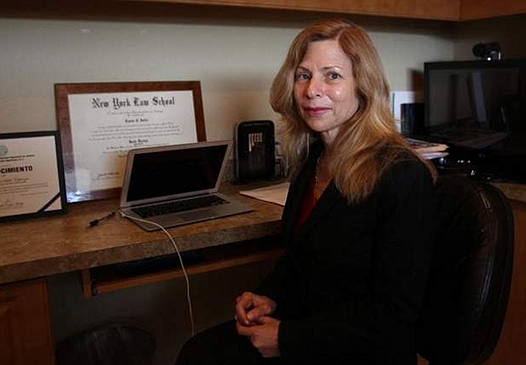New article highlights role of Fair Food Standards Council in cultivating new human rights standards for Florida tomatoes…

Retired New York State Supreme Court Judge Laura Safer Espinoza, Director, Fair Food Standards Council
As the Florida tomato growing season draws to a close, the Fort Myers News-Press yesterday published an exhaustive front-page article detailing the efforts of the Sarasota-based Fair Food Standards Council (FFSC) in monitoring the provisions of the Fair Food Program in fields across the state.
The article describes not only the groundbreaking advances and improvements in farmworker wages and working conditions set in motion in the Fair Food Program’s recently concluded inaugural season, but also notes the benefits for growers, as well as the challenges that remain in order to solidify and deepen those changes. Farmworker Chepe Orozco describes the new day dawning in Florida’s fields:
| “Some weeks, it’s a couple of extra bucks in his paycheck. Others, it’s upward of $100.
But apart from the income bump, what Chepe ‘Guero’ Orozco notices is that his bosses now make eye contact with him. ‘Face to face, direct, with some respect, instead of as a rancher to his little animals,’ Orozco says, on his way into the Maxx Foods supermarket on Palm Beach Boulevard in east Fort Myers to pick up a new pair of socks. He pauses, then says, ‘That may be because they know there’s vigilance now — eyes — the eyes of the coalition,’ he says, pointing at one of his own startling baby blues. Actually, the eyes don’t belong to the Coalition of Immokalee Workers, the grass-roots nonprofit that’s fought for years to make Orozco’s life — and the lives of his 30,000 or so tomato harvester colleagues — better. Instead, they’re in the seven heads that make up the newly formed Fair Food Standards Council, the independent nonprofit in charge of making sure those differences Orozco has noticed will last….” read more |
Indeed, it is this tandem effort — the independent Fair Food Standards Council based in Sarasota with dedicated staff and ample resources tasked with monitoring and oversight, combined with the day-to-day, face-to-face educational efforts of the CIW and a base of informed, empowered workers, underpinned by real market consequences and incentives for growers — that differentiates the Fair Food Program from so many other auditing efforts.
As the article points out, major tomato purchasers and their market power play a crucial role in not only improving farmworkers’ pay but also ensuring that the nascent changes take solid, lasting root:
| “The Fair Food agreement gives workers a penny-per-pound raise that comes not from growers, but from the growers’ customers: corporate tomato buyers. Those include the world’s major fast-food companies, institutional food services and specialty grocers Whole Foods and Trader Joe’s, who report collectively paying out $7 million in premiums…
The council’s approach includes auditing and a confidential complaint line, so if something surfaces, there’s a formal, agreed-upon way to resolve it. That’s backed up by the power of the marketplace… Those who’ve signed the agreement want it to mean something. ‘[Major tomato purchasers] want to be assured that they can say with a high degree of certainty that the tomatoes they’re selling and buying were grown and harvested under fair working conditions … it’s a market advantage with their consuming public, who are increasingly putting a value on that,’ Espinoza said…” read more |
As Judge Safer Espinoza states, “The race has not been won — not by a long shot.” The implementation of the Fair Food Program is still a work in progress. In addition to the on-the-ground work by the FFSC, growers and farmworkers themselves to make this unprecedented transformation in farm labor conditions real and lasting, major tomato purchasers must also wield their market power to insure that the provisions of the Fair Food Program have teeth.
In the past, companies like Publix, Stop & Shop, Giant and Chipotle could claim it was not possible for them to hew to their stated values without doing serious harm to their businesses, because the broader market did not support those values. But they no longer have that excuse. The Fair Food Program now allows companies to provide their customers with a product that is both fresh and fair — the wave of the future in the supermarket industry, where customers are ever better informed about how their food is produced.
For more on the Fair Food Program, be sure to check out the News-Press article.
